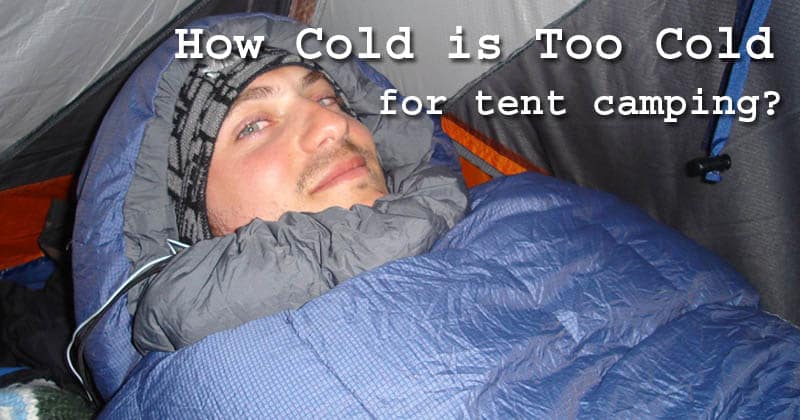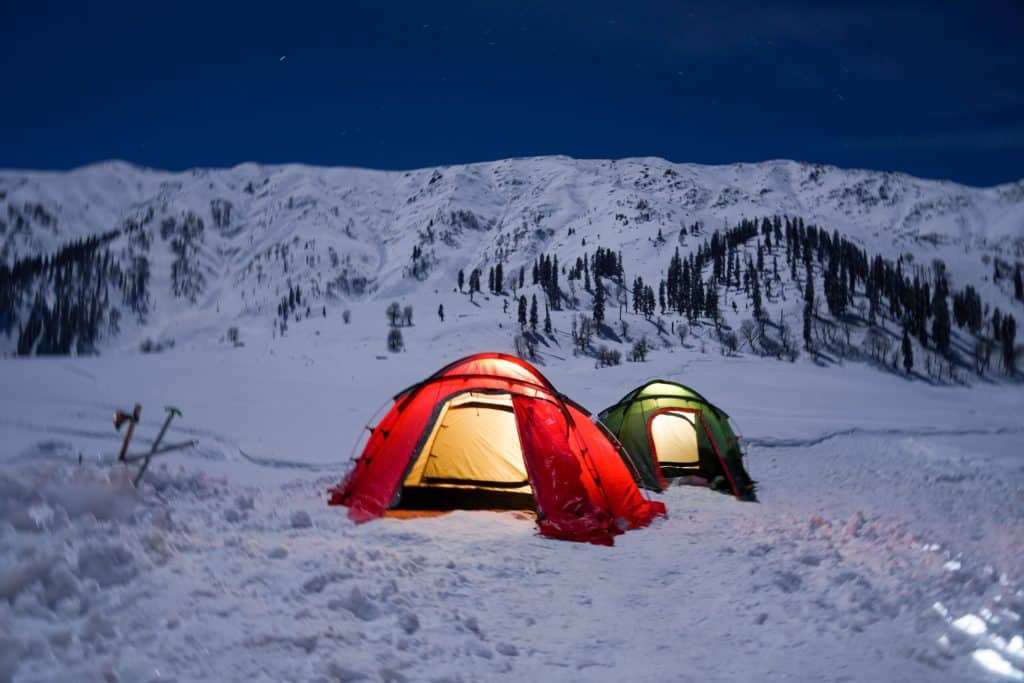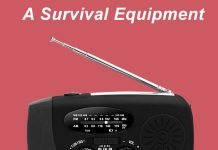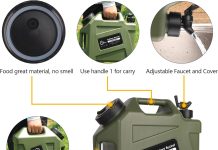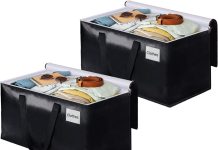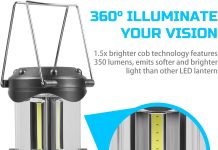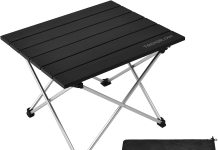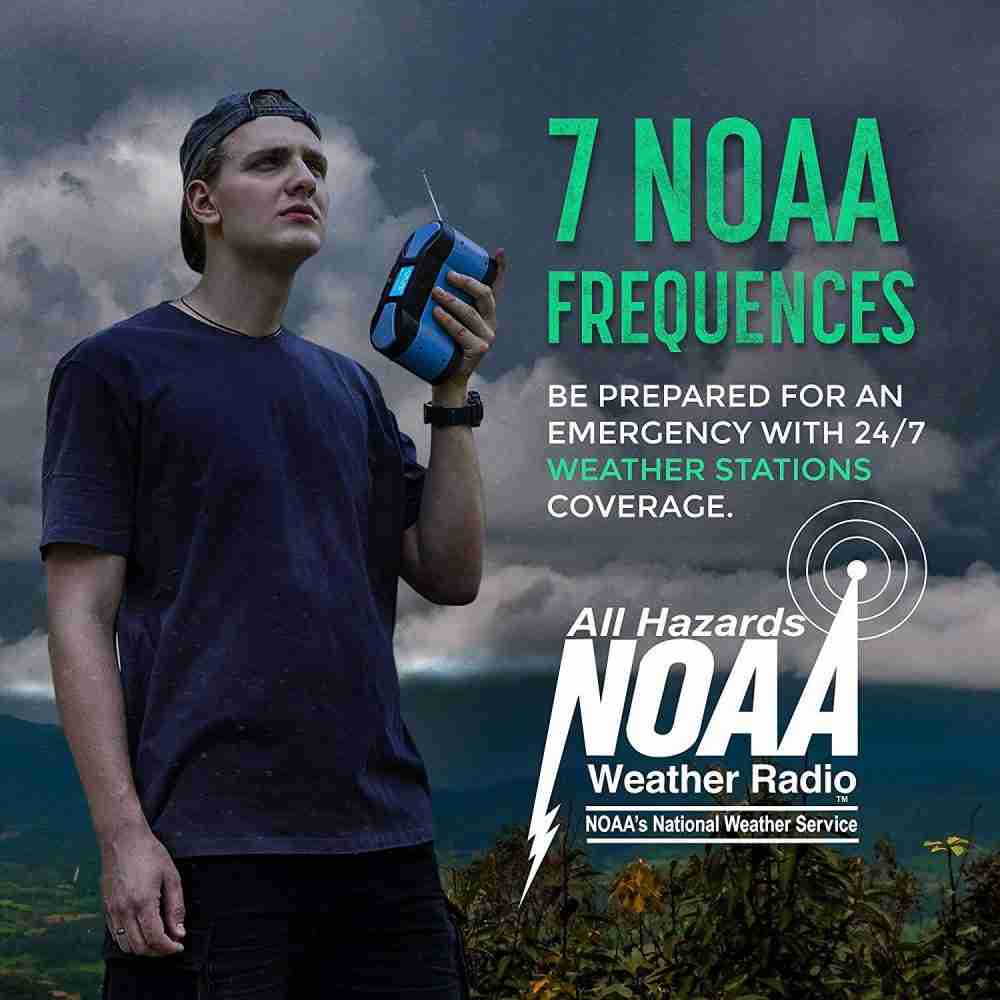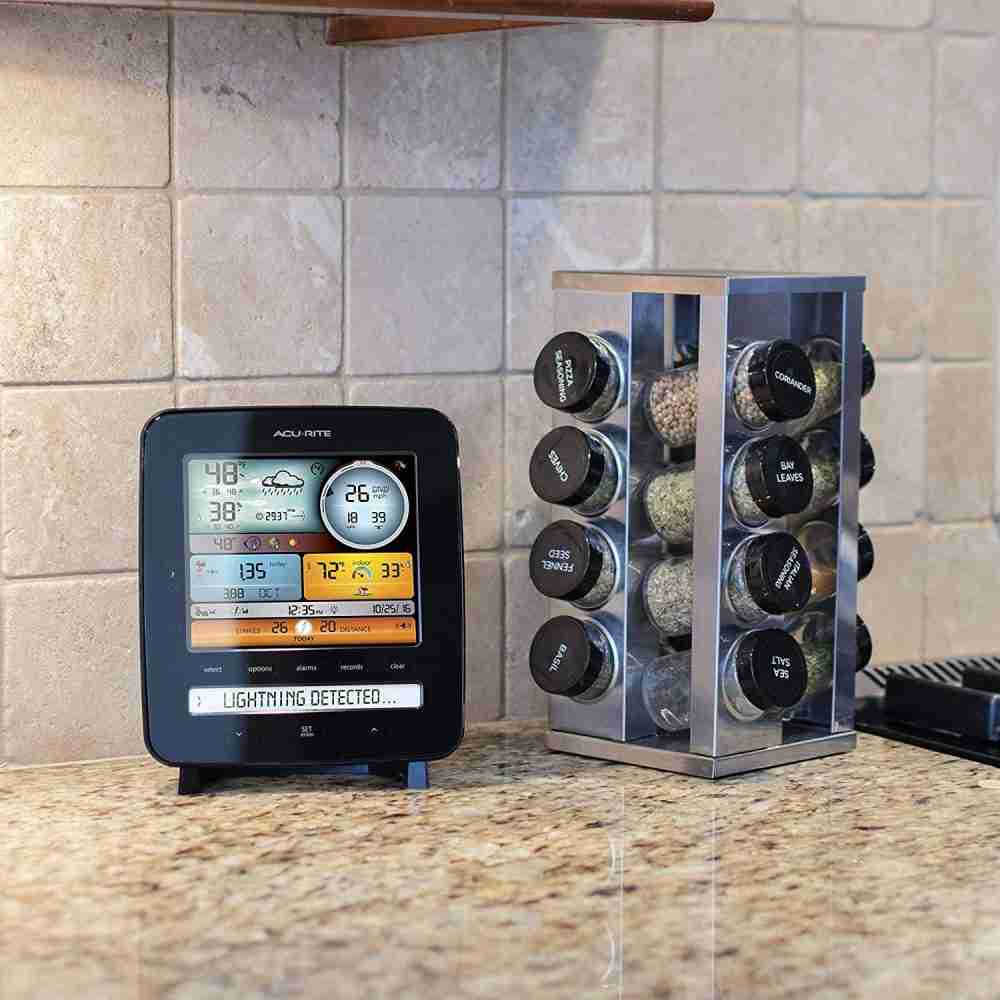It’s a common dilemma for outdoor enthusiasts and campers alike: how cold is too cold to camp in a tent?
With the brisk winter air creeping in and temperatures dropping, finding the optimal temperature range for a comfortable camping experience becomes crucial.
While some may be accustomed to braving the elements, it’s essential to know when to retreat to a cozy cabin or opt for a different season altogether.
In this article, we’ll explore the factors to consider when determining the limit of coldness for a tent camping adventure.
So grab your warm beverage, and let’s find out how low the thermometer can go before packing up and heading home!
Factors to Consider
Temperature Range
When deciding whether it’s too cold to camp in a tent, one of the first factors to consider is the temperature range. Different people have different thresholds when it comes to cold-weather camping.
Some might find temperatures below freezing unbearable, while others may be comfortable in colder conditions. It’s essential to assess your own tolerance and comfort level when determining the temperature range that is suitable for you.
Wind Chill
In addition to the actual temperature, wind chill can have a significant impact on how cold it feels outside.
Wind can make the air feel much colder than it is, which can make camping in low temperatures more challenging. Check the wind chill forecast before heading out and consider it when deciding if it’s too cold to camp.
Humidity
Humidity is another factor to consider when planning a cold-weather camping trip. High humidity levels can cause the air to feel even colder, as moisture in the air can lead to a more significant heat loss from your body.
It’s essential to consider the temperature and humidity levels when assessing whether it’s too cold to camp in a tent.
Personal Tolerance
Ultimately, your tolerance for cold weather camping will significantly determine whether it’s too cold for you. Some people are naturally more resilient to the cold, while others may feel uncomfortable even in milder temperatures.
Consider your past camping experiences and how well you tolerate lower temperatures before deciding if it’s too cold to camp in a tent.
Choosing the Right Gear
Temperature Ratings
When camping in cold weather, choosing gear with appropriate temperature ratings is essential. Sleeping bags, clothing, and accessories such as gloves and hats should be designed for the expected temperature range.
Look for gear with temperature ratings below the anticipated low temperatures of your camping trip to ensure that you stay warm and comfortable throughout the night.
Insulation
Insulation is crucial for cold-weather camping gear. Look for sleeping bags and clothing that offer excellent insulation to trap your body heat and keep you warm. Down insulation is highly effective but can lose its insulating properties when wet. Synthetic insulation, on the other hand, retains heat even when damp. Consider the insulation type that best suits your needs and the potential weather conditions.
Outer Material
The outer material of your camping gear is also essential, especially when staying dry. Look for waterproof or water-resistant materials for your tent, sleeping bag, and clothing to protect yourself from moisture. This is particularly essential in cold weather, as staying dry is crucial for staying warm and avoiding the risks of hypothermia and frostbite.
Tent Size
When camping in cold weather, choose a tent that provides enough space for you and your gear while efficiently heating and insulating. A smaller tent may be easier to heat, but it might not provide enough space for your camping gear or allow for comfortable movement inside. Consider the size and layout of your tent to ensure that it meets your needs for cold-weather camping.
Preparing for Cold Weather Camping
Check Weather Forecasts
Before setting off on your cold-weather camping adventure, it’s crucial to check the weather forecasts thoroughly. Pay close attention to the expected temperatures, wind chill, and possible precipitation.
Knowing the weather conditions in advance will help you pack the appropriate gear and adjust your camping plans.
Layering Clothing
Layering your clothing is one of the most effective ways to stay warm in cold weather. The layering system has three main layers: base, insulation, and outer shell.
The base layer should be moisture-wicking, the insulation layer should provide warmth, and the outer shell layer should be waterproof and windproof. By layering your clothing, you can adjust your insulation levels to regulate your body temperature effectively.
Proper Sleeping Gear
Investing in high-quality sleeping gear is crucial for cold-weather camping. Your sleeping bag should have a temperature rating suitable for the expected low temperatures, and using a sleeping pad or an insulated mattress can provide additional insulation and cushioning from the cold ground. Consider using a liner for your sleeping bag to add warmth and keep it clean.
Keeping the Tent Warm
Keeping your tent warm during cold camping can significantly enhance your comfort and safety. To achieve this, consider using a tent with good insulation properties and a rainfly that extends closer to the ground to block cold drafts.
Use a groundsheet or tarp under your tent to provide an extra insulation layer. Use a tent heater (if allowed and used safely) or insulating blankets to help trap and retain heat within the tent.
Potential Risks of Camping in Extreme Cold
Hypothermia
Hypothermia is a severe risk when camping in extreme cold. It occurs when your body loses heat faster than it can produce, resulting in a dangerously low body temperature.
Symptoms of hypothermia include shivering, confusion, drowsiness, and loss of coordination. To prevent hypothermia, ensure proper insulation, stay dry, and take regular breaks to warm up and refuel.
Frostbite
Frostbite is another risk associated with cold weather camping. It occurs when your skin and underlying tissues freeze, leading to damage and potentially permanent injury.
To prevent frostbite, it’s essential to keep your extremities warm by wearing insulated gloves, socks, and boots. Regularly check for signs of frostbite, such as pale or waxy skin, numbness, or a tingling sensation, and seek medical attention if necessary.
Condensation and Dampness
Condensation and dampness are common issues when camping in cold weather. Moisture from your breath and sweat can collect in the tent, leading to dampness, which can cause discomfort and make it harder to stay warm.
To combat condensation, ensure proper ventilation in your tent, avoid bringing wet items inside, and use moisture-wicking materials for clothing and sleeping gear.
Equipment Failure
Extreme cold can also increase the risk of equipment failure. Batteries may lose their charge more quickly, and water sources may freeze, making it difficult to access water for cooking or drinking.
To mitigate the risk of equipment failure, keep spare batteries in a warm location, insulate water containers, and have alternative cooking methods, such as a camping stove.
Tips for Cold Weather Camping
Choose a Sheltered Campsite
When camping in cold weather, choosing a sheltered campsite can significantly improve your comfort and safety. Look for spots protected from strong winds, such as natural windbreaks or areas surrounded by trees or rocks. This will help reduce wind chill and provide a more comfortable camping experience.
Stay Hydrated and Nourished
Staying hydrated and nourished is crucial when camping in cold weather. It’s easy to overlook these needs when the temperatures drop, but your body still requires fuel and hydration to function optimally. Drink plenty of fluids and eat nutritious, high-energy foods to maintain your body’s warmth and energy levels.
Keep Moving and Stay Active
Physical activity generates body heat, so staying active during cold weather camping can help keep you warm. Use hiking, skiing, or snowshoeing to generate body heat and maintain circulation. Just dress appropriately for the activity and take regular breaks to rest and warm up.
Use Hand and Foot Warmers
Hand and foot warmers are small packets that generate heat when activated. These can be a lifesaver in cold weather camping, as they provide warmth to your extremities and help prevent frostbite. Simply activate the warmers and place them inside your gloves or boots for instant heat.
Alternative Options
Winter Camping in a Camper/RV
If tent camping in extreme cold doesn’t seem appealing, winter camping in a camper or RV is an alternative option. These vehicles provide more insulation and amenities, ensuring a more comfortable camping experience in colder temperatures.
Camper/RV camping allows greater control over the interior temperature and offers additional protection from the elements.
Renting a Heated Cabin
Renting a heated cabin is a fantastic option for those who prefer a cozy and heated environment during their winter camping experience. Many campgrounds and parks offer cabins equipped with heating systems, providing a warm and comfortable retreat from the cold. This option allows you to enjoy the beauty of nature while still having a comfortable place to relax and sleep.
Cold Weather Glamping
Glamping, a combination of camping and luxury, can be another alternative during cold weather. Cold-weather glamping typically involves staying in well-insulated tents or yurts equipped with heating systems, comfortable bedding, and other amenities.
This option offers a unique and lavish camping experience while providing warmth and comfort during chilly nights.
Indoor Camping
If facing the cold weather does not appeal to you, indoor camping can still give you a taste of the camping experience.
Set up a camping-themed indoor space with tents, sleeping bags, and camping activities. This option allows you to enjoy the camping ambiance without facing cold weather challenges.
Final Thoughts
Know Your Limits
When considering cold-weather camping, knowing your limits and understanding what you are comfortable with is crucial.
Everyone’s tolerance for cold temperatures differs, so assessing your comfort levels and choosing camping conditions that align with them is essential. Pushing your limits too far can result in discomfort, safety issues, or negative experiences.
Be Prepared and Stay Safe
Regardless of the camping conditions, being prepared and staying safe should always be a priority.
This includes packing appropriate gear, checking weather forecasts, informing someone of your camping plans, and having a planned emergency response. By taking these precautions, you can enjoy your cold-weather camping experience with peace of mind.
Embrace Winter Camping
Cold-weather camping can be a unique and rewarding experience for outdoor enthusiasts. It offers a chance to explore a different side of nature and enjoy the beauty of winter landscapes.
With proper planning, preparation, and the right gear, you can embark on a memorable cold-weather camping adventure and create lasting memories in even the coldest temperatures. So bundle up, embrace the cold, and enjoy all that winter camping offers!


